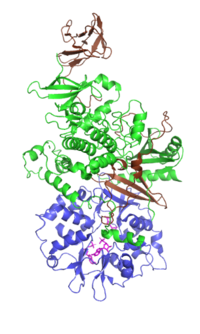
A functional role for AMPK in female fertility and endometrial regeneration
Sign Up to like & getrecommendations! Published in 2018 at "Reproduction"
DOI: 10.1530/rep-18-0372
Abstract: Adenosine monophosphate-activated protein kinase (AMPK) is a highly conserved heterotrimeric complex that acts as an intracellular energy sensor. Based on recent observations of AMPK expression in all structures of the female reproductive system, we hypothesized… read more here.
Keywords: prkaa1 female; prkaa1; endometrial regeneration; female mice ... See more keywords

AMPK is required for uterine receptivity and normal responses to steroid hormones.
Sign Up to like & getrecommendations! Published in 2020 at "Reproduction"
DOI: 10.1530/rep-19-0402
Abstract: We previously demonstrated that 5'-adenosine monophosphate-activated protein kinase (AMPK) is essential for normal reproductive functions in female mice. Conditional ablation of Prkaa1 and Prkaa2, genes that encode the α1 and α2 catalytic domains of AMPK,… read more here.
Keywords: decidualization; mice; prkaa1; cell ... See more keywords

PRKAA1, stabilized by FTO in an m6A-YTHDF2-dependent manner, promotes cell proliferation and glycolysis of gastric cancer by regulating the redox balance.
Sign Up to like & getrecommendations! Published in 2022 at "Neoplasma"
DOI: 10.4149/neo_2022_220714n714
Abstract: Gastric carcinoma (GC) is the fourth most common malignancy worldwide and the second cause of death of all malignancies worldwide. AMPK catalytic subunit α1 (PRKAA1) is involved in various types of cancer and PRKAA1 knockdown… read more here.
Keywords: cell; prkaa1; glycolysis; redox balance ... See more keywords